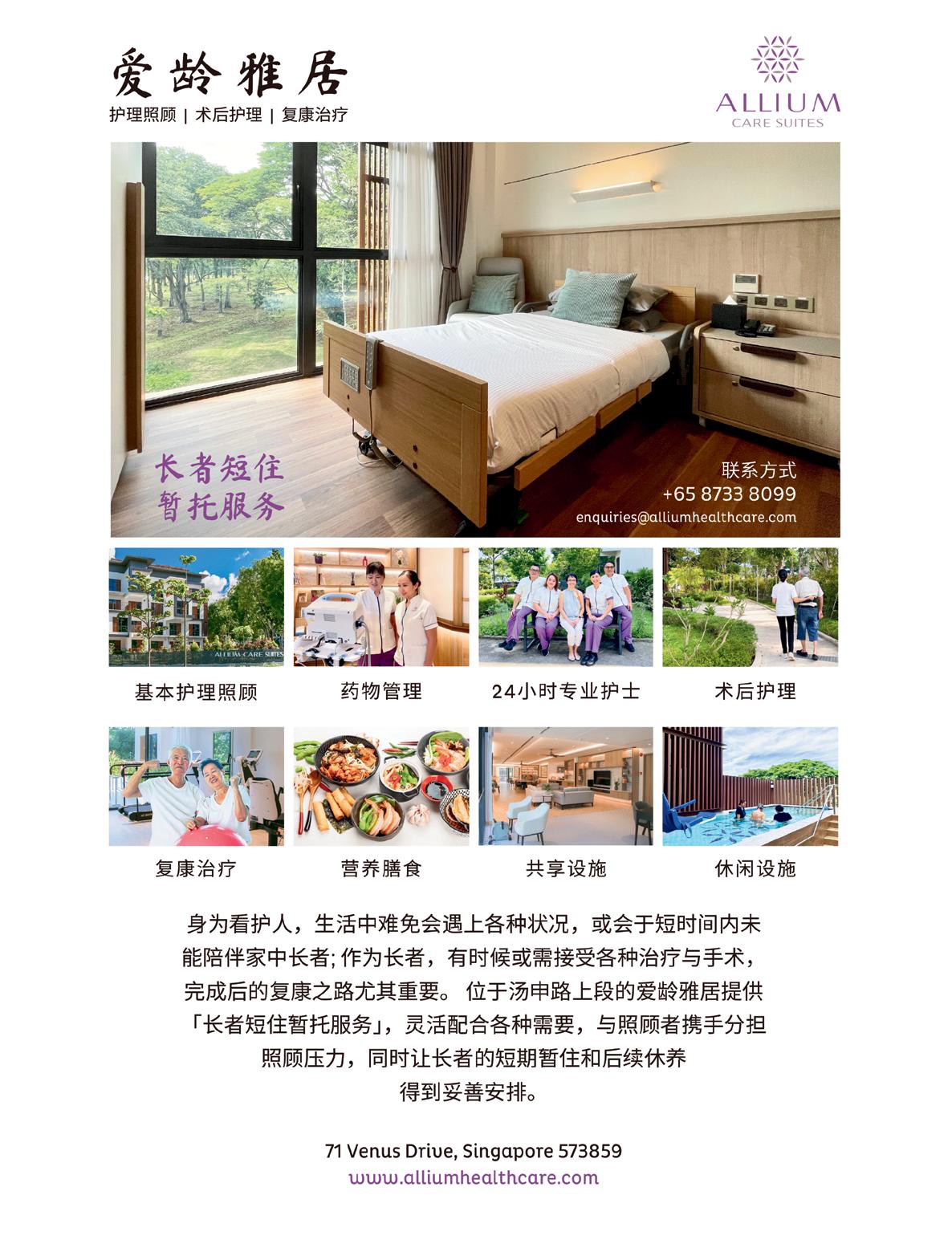
CHINESE ENTREPRENEUR
专访陈睦发
Interview with Tan Bock Huat 16
驾驭时局 掌握未来:接纳 - 克服 - 成长
Navigating Change Today: Embrace, Overcome and Grow














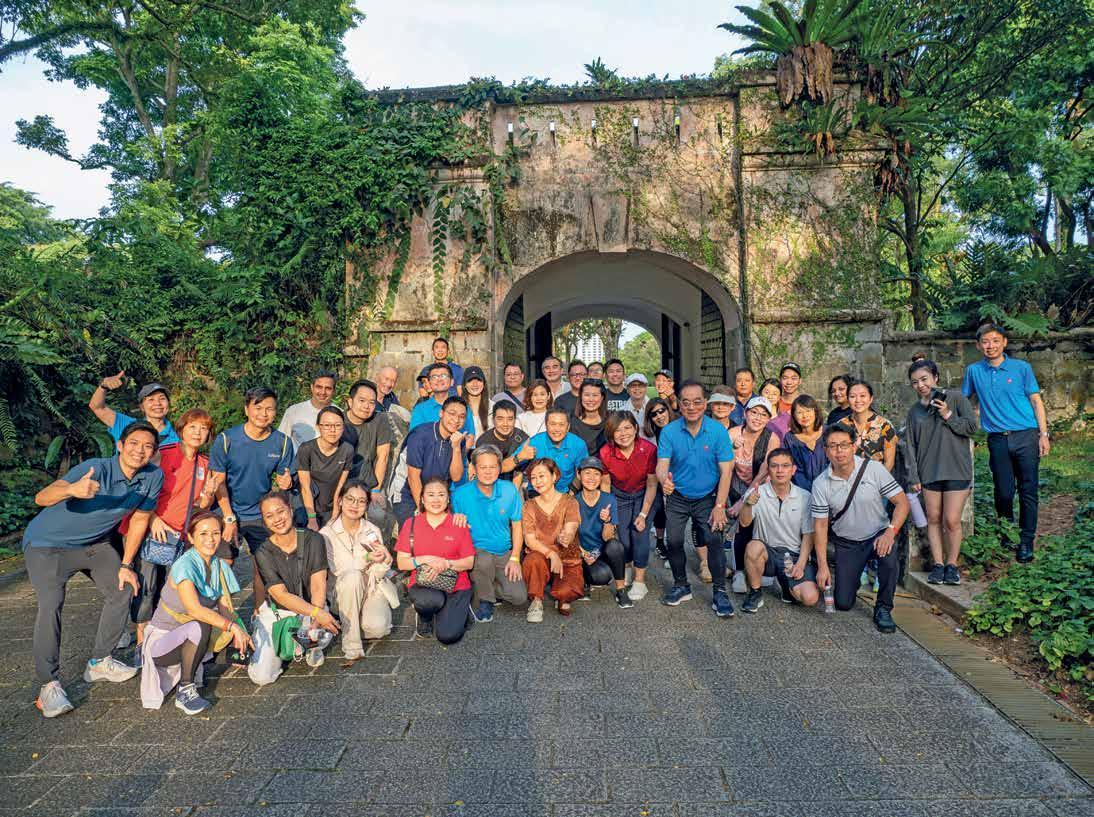

























中小型企业大会 暨资信商业大会
驾驭时局 掌握未来:
接纳 - 克服 - 成长


专访陈睦发
Interview with Tan Bock Huat 16
驾驭时局 掌握未来:接纳 - 克服 - 成长
Navigating Change Today: Embrace, Overcome and Grow








































中小型企业大会 暨资信商业大会
驾驭时局 掌握未来:
接纳 - 克服 - 成长
Navigating Change Today: Embrace, Overcome and Grow

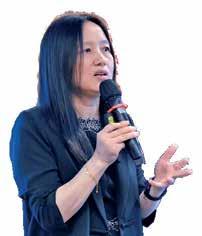
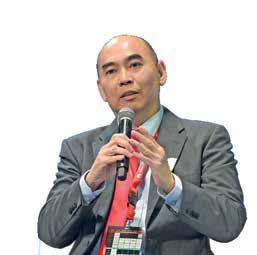
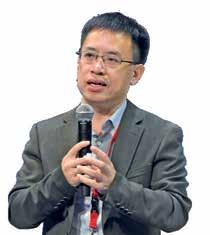
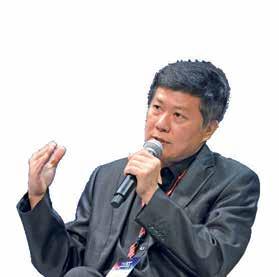



中小型企业大会暨资信商业大会
(SMEICC)向来是中小企业高效学习 并扩大人脉圈的重要平台。2024年的大会迈 入第27届,主题为“驾驭时局 掌握未来:接纳 - 克服 - 成长”。有约5000名业主、企业高层、 政府代表和其他商务人士出席大会。大会精选 的一系列大师班和论坛,涵盖永续发展、人工 智能、领导力、家族企业等课题。与会者能接 触到最具前瞻性的商业策略,强化创新能力, 让企业保持韧性,在瞬息万变的商业环境中取 得成功。
SMEICC has been a key platform for SMEs to gain access to powerful learning and networking opportunities at the Conference. The 2024 Conference was in its 27th year running, which adopts the theme of Navigating Change Today: Embrace, Overcome and Grow. Close to 5,000 business owners, C-suite executives, government representatives, and other industry stakeholders have participated in the event. The Conference featured a diverse selection of masterclasses and panel discussions, trending topics include sustainability, AI, leadership, family enterprises among many more. Participants were able to gain visionary insights into business strategies and explore innovations to remain resilient and achieve success in today’s dynamic business arena.


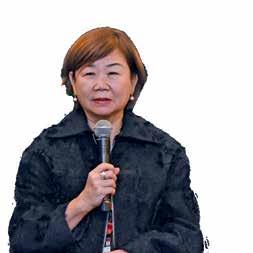
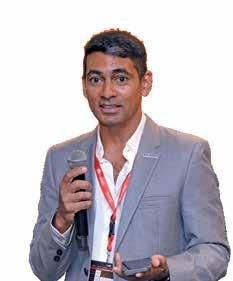
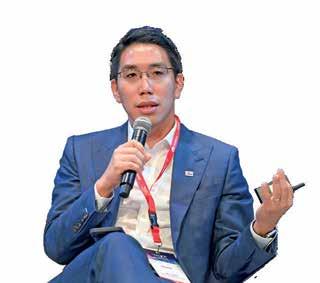
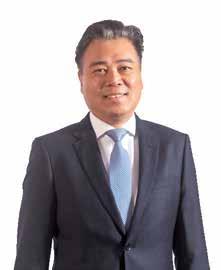




































上海交通大学 安泰经管学院 长聘教授












消费品零售业高质量发展, 不可忽视Z世代
王良燕教授利用数据划出一个动态的情 境,从微观剖析消费者需求的变革。根据 麦肯锡咨询调研,在中国,18岁到25岁不 分城市级别的Z世代属于最为乐观人群。


Z世代追求个性真我,看重商品功能 价值外的附加价值和情感价值。这股青春 动力正改变着品牌经营的方式。研究显 示,65.8%的Z世代了解国潮文化消费;八 成的Z世代用户愿意购买国潮产品。



“跨品类的品 牌延伸对新兴 品牌比较适用 ,对老品牌则 要慎用。”










他们的生活离不开电子产品,注重线 上社交和使用主流APP。品牌要透过情感 营销、价值观营销,在产品中融入传统文 化,充分利用社交平台,才能够留住Z世代 客户。




艾瑞咨询CNNIC2023年研究数 据显示,中国直播电商用户规模已达 5.3亿人,占网络用户规模的60%,保 持着增长的势头。线上交易的规模在 2023年已达到46.8万亿元,比2003 年的39.1亿增长了近1.2万倍。中国参 与电子商务的使用设备已超过10亿基 准线。





人工智能技术迅猛发展,对传统品牌形 象塑造、客户沟通、价格谈判有着深刻影 响。企业主动融入智能时代,创新营销模 式,通过技术驱动力,便可吸引Z世代使用 社媒接触品牌。





品牌延伸是否总能取得好的收效? 品牌延伸的意义在于降低陌生感、减低营销 费用,提升品牌曝光率,形成一个规模经济 优势,提高品牌的资产价值。






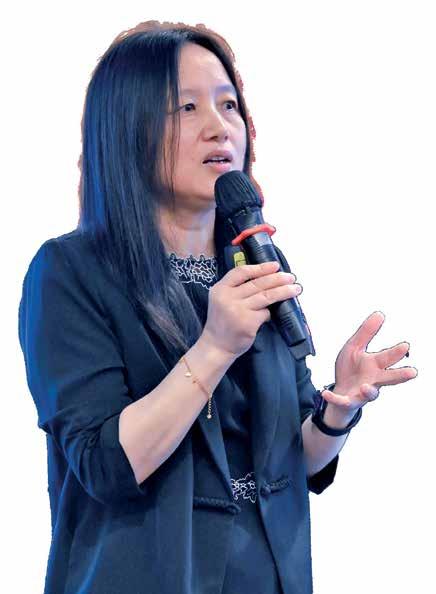





王良燕提醒,跨品类的品牌延伸虽然已 成为很多企业活化品牌形象的方法,但此类 延伸对新兴品牌比较适用,对老品牌则要 慎用。



















王良燕根据消费者的评论,做了一个持 平分析,通过一系列的实验,对比新老品 牌,发现老品牌不宜做大尺度的品牌延伸。



品牌在消费者心目中有个品牌规范信念。老 字号有历史厚重感,承载着历史意义,凝练 了文化精髓,所以要做老品牌延伸,必须做 到感知度匹配,不应该做大尺度品牌延伸。











跨品类的品牌延伸会影响消费者对老字号品 牌的态度,打破品牌延伸完美的假象。


























































拿督吴逸平硕士

马来西亚多美集团 挥舞文化元素、 再创新局的珠宝世家







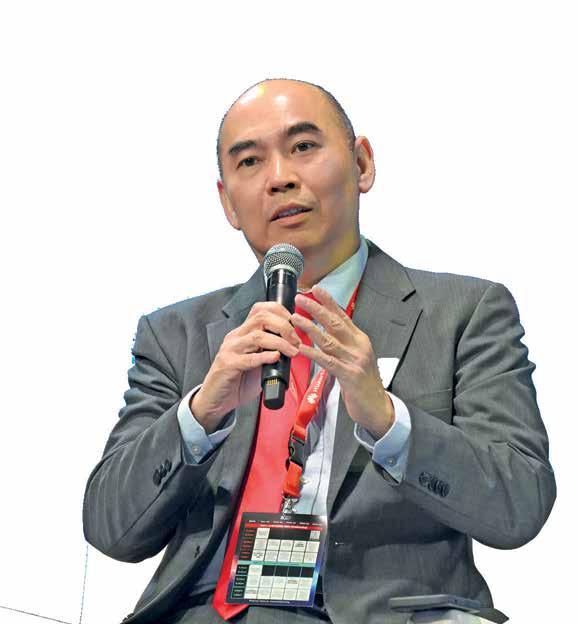
这是吴逸平经历和带领多美集团的多次 转型蜕变后,发自肺腑的视野格局。他 认为必须有效地赋能团队,企业转型才 能成功并行稳致远。

多美是马来西亚超过半世纪的珠宝 品牌,由吴逸平的父亲已故丹斯里拿督 吴德芳博士所创办。吴逸平在大学毕业 后就加入企业,从基层开始累积经验, 一直做到今天的“掌门人”。



“一群人拼,一定好过一 个人拼。领导者的成功
不仅在于带领企业走向成 功,更是为团队创造成长



“企业走在别人前面,能获得更多, 并掌握未来的主动权……走在不一样的道 路,也能看见不一样的风景。”







吴逸平加入公司后从清洁展示柜、 巡视全国门店、带队到国外参展,都亲 力亲为,如今已经和员工打成一片。有 一次离开珠宝展的路上,他还发现有可 疑车量尾随,灵机一动下直接开车进警 局。饱经磨练让他具备坚忍毅力,能担 起偌大企业的领导重任。










他对企业转型的经验也如数家珍。
他观察到,近几年来文化和风水将成为 引领消费趋势的重要因素,消费者愿意 为此付出更高价格。因此多美提前布 局,将文化融入设计,成功让品牌在市 场中脱颖而出。
他坦言,要成大事不能“一言堂”, 得向团队沟通和传递理念,因此往往做了 决定后团队都会团结一心。比如新冠疫情 期间,他鼓励员工变身直播员,在最艰难 时期保持着营运的稳定。2022年,他带领 多美再次转型——引进大数据应用加强营 销能力,并招揽了一批大学生,积极开发 商业情报,激发企业拓荒的魄力。



程国华博士


他因此决定大胆先发制人,并举办医学界 的“人机大战”比赛。最后杭州健培科技 赢得全国冠军,并登上中国中央电视台的 节目。

杭州健培科技有限公司


无畏起落,以前瞻信心开拓医疗 AI新疆土


董事长兼浙江啄云智能科技有限公司董事长 十多年前,程国华看到了人工智能应用 在医疗领域的机遇,毅然落实自己的创 业理想,于是以寥寥数人的团队白手起 家。2013年,他开发出了全国第一个人工 智能阅片机器人,今名为“啄医生”。而 企业一路走来跨过了三次的危机,也给了 他宝贵的人生功课。

第三次危机,是当2023年迎来生成 式人工智能的爆发成长,进入大语言模型 时代,令人质疑“啄医生”技术是否仍具 优势。但由于已经充分建立医疗行业大数 据,这次危机中他充满信心。2023年“啄 医生”坐诊由自己创办的全国第一家AI医 院,正式完成走进社区的最后一里路。




在医学界已经拥有一席之地后,程国 华从未停止寻找“野蛮生长”的机会。本 着“从检测人体到检测万物”的理念,如 今他在探索高速智能安检包裹技术,这与 人体检查有异曲同工之妙,也是电商时代 的一大需求。


第一次危机,是由于人工智能这项技术 太超前,产品做出来后,难以找到市场。
他面临巨大的挑战,甚至把新加坡房子卖 了以筹集运营资金。身为领导者,那一次 体现的决心和担当给了团队很大的信心。

他犹记得,第一个客户是来自新疆, 当时他亲自背着服务器去到当地安装。后 来他获得了一个“站在巨人的肩膀”的机 会,那就是找到华为合作,双方联合成立 了医学影像智能分析研究中心。因为自己 在这领域深耕已久,因此获得青睐并自此 站稳脚跟。




“领导是先投 入了才看到希 望,团队是看 到希望才投入 跟随。”
企业的第二次危机来得吊诡—— 谷歌AlphaGo战胜世界围棋冠军 李世石后,人工智能企业如雨 后春笋般兴起,让程国华 感到竞争压力倍增。







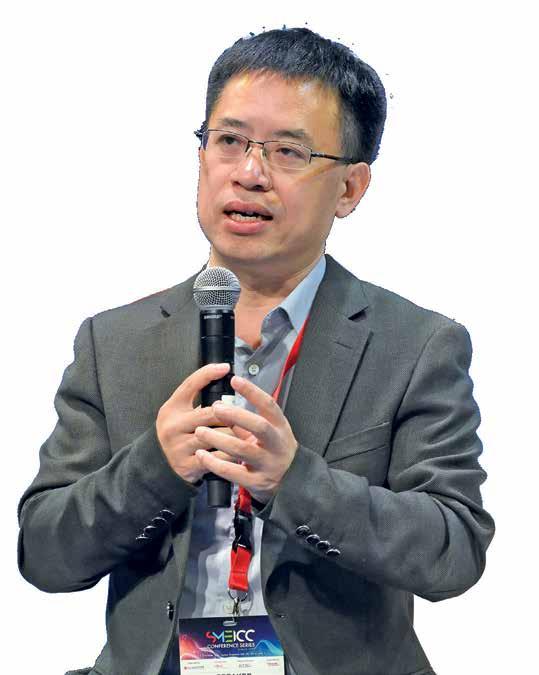



























































Ms Evelyn Tay






Chief Executive Officer, Singapore and Group Chief Human Resources Officer
EtonHouse International Education Group






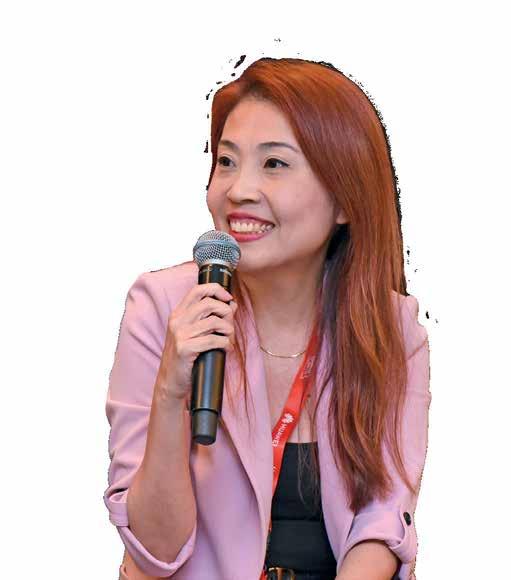








































“We recognise that for every geography, we need to let the local teams run the School.”


































































The EtonHouse’s management model was designed to oversee operations in China from Singapore at the beginning, with colleagues based in China, while the leadership team in Singapore took charge of the overall operations. “And we went through a phase of transition, which led us to letting the local teams there run the schools directly,” explains Evelyn. Today, the local representatives oversee daily operations and ensure the smooth running of the schools. “We recognise that for every geography, we need to let the













































EtonHouse has embarked on digitalisation across many facets of its operations, including its payroll system to enhance efficiency. This global educational landscape.


























































































Mr Ang Kiam Meng





Executive Chairman & Group CEO
JUMBO Group Limited




























When a family business transitions from one generation to the next, it often carefully evaluates key industry trends to guide its business strategies and implement meaningful changes. In the case of JUMBO, under the leadership of Ang Kiam Meng, JUMBO has enhanced the restaurant environment as a fresh and innovative aspect of its business.


















“JUMBO has put in a little more on the environment”, says Kiam Meng, who sees that dining concepts from previous generation can be adapted to align with today’s lifestyles, as people increasingly seek for better dining experience. Like other family businesses, JUMBO regularly reviews its unique goals and tasks, ensuring its core values, traditions and key ideas are passed down from one generation to the next.






“What has translated through the generations is the importance of consistently taking care of the people who work for you and help you, not just when it comes to work, but also beyond the workplace.”









would employ professionals.”

















































Kiam Meng’s children began their journey in the business from the ground up, just like any other employee. “At my position, I give them tasks to take on and I observe. I have to identify, to judge and make the decision from there,” says Kiam Meng. “If none of them can fit the job, we

He emphasised the need to balance tradition with innovation to secure the future for the business. It is his hope to have his children understand the rationale behind the decisions made by the previous generations, including the current one, that have contributed to the development of the business today. Hence, it is necessary to adhere to certain established practices, even if his children wish to implement changes in the company.

Senior Manager, Cuisine and Culinary Excellence (CCE)
JUMBO
Group Limited


















Ashley, the second daughter of Kiam Meng, shared that her father had dedicated time to mentor and groom her. “What has translated through the generations is the importance of consistently taking care of the people who work for you and help you, not just when it comes to work, but also beyond the workplace.” This philosophy, she emphasised, will continue to shape the way JUMBO navigates modern challenges while staying true to its heritage.











Dr Lynda Wee Chief Executive Officer
Bootstrap Pte Ltd
Lynda shared that it is natural for team members to focus on their achievements – hitting the market, generating revenue, and celebrating successes. When an entire company embraces success, its leaders are inspired to assign responsibilities, define clear objectives for growth and cultivate a positive mentality in the workplace. While celebrating milestones is important, she emphasised the importance of planning ahead and identifying areas for improvement such as incorporating an improvement list into the project debriefs.
“Make sure your improvement list is one of the deliverables you get,” says Lynda, as this list can help team members to
critically evaluate work processes. While it is natural to bask in the success of what worked, Lynda encourages people to ask the tougher questions: “What did we not do? What didn’t we accomplish?” the answers in the improvement list will form a culture of reflection, continuous learning, strategically addressing gaps, and contribute to building a resilient organisation prepared to face future challenges.
“I can let the change start with me”, says Lynda, as she encourages individuals to work within their “sphere of influence” and cultivate curiosity, letting individuals stay engaged and motivated. This curiosity, says Lynda, would spur people “to ask questions, make discoveries, over time, the culture in the company will change”, even within the framework of bureaucracy.
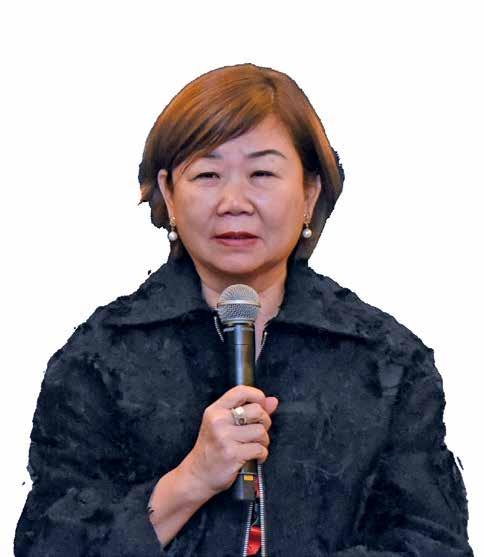
Ask the tougher questions: “What did we not do? What didn’t we accomplish?”

The reason business organisations decide to do design thinking is because they aspire to drive transformational change, explains Lynda. To achieve this, individuals need to be clear on who they are innovating for by creating a shared persona profile for focus. Next, gain deep empathy through Persona Journey Mapping to identify their joy, pain and opportunity. Frame how-might-we problem statement first, then engage in generating creative ideas.
Lynda also advises team leaders to use a multidimentional approach, by involving a diverse group of people during design-thinking. This will bring together varied perspectives and expertise, allowing team members to think beyond conventional boundaries. By integrating these elements, organisations can achieve a far-reaching impact, paving the way for sustainable growth.

Executive Vice President
Ensign InfoSecurity (S) Pte Ltd
Gaurav embraces diverse perspectives, surrounding himself with people who may have differing views from him. For him, it fosters robust discussions that can lead to better outcomes. He believes that innovation stems from an environment where all contributions are valued, where individuals can freely share their thoughts - even the “bad ideas.” It paves the way for well-rounded and effective decision-making. He encourages leaders to approach problem-solving with an open mindset and welcome new perspectives, especially when the existing policies are questioned. While it’s natural to react defensively to criticism, Gaurav stresses the importance of staying receptive, “be a supporter and help team members on their journey. Don’t be defensive to new ideas.”
To inspire creativity, he urges employers to reward innovation, encouraging employees to step out of their comfort zones and explore new possibilities for continuous improvement.
Gaurav also highlights the value of open communication, particularly in bureaucratic environments. He

believes that taking the time to engage in meaningful discussions can help people understand and approach problems from multiple angles. Encouraging active involvement strengthens teamwork. When challenges arise, Gaurav believes in making employees feel empowered, “make them the heroes of the story”. When team members feel valued, they can collaborate more effectively and share the success of their collective efforts.
“Be a supporter and help team members on their journey. Don’t be defensive to new ideas.”
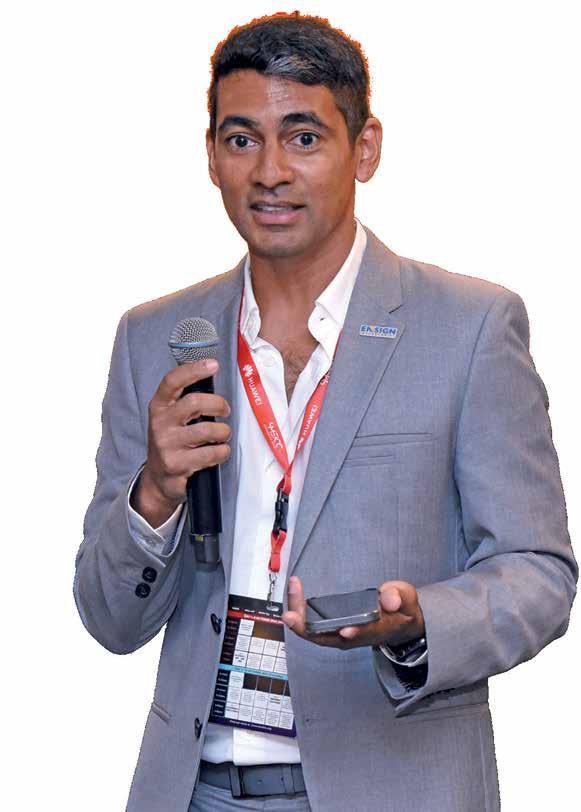

Eric
Chief Executive Officer
Mlion
Corporation Pte Ltd
Eric believes in using innovation to disrupt the market, going where no one else will, and creating a market niche. Mlion’s solution-focused approach means listening to clients and understanding their needs and requirements, thereby displaying Mlion’s competitive edge. Through building strong relationships with clients, Mlion aims to understand their project challenges and provide tailored solutions for their needs. This is as opposed to relying on middlemen or just being a seller of steel products where customers pick what they want off our catalogue. This belief in going the extra mile and providing solutions rather than just products is what has set Mlion apart and successfully grown Mlion’s client base.
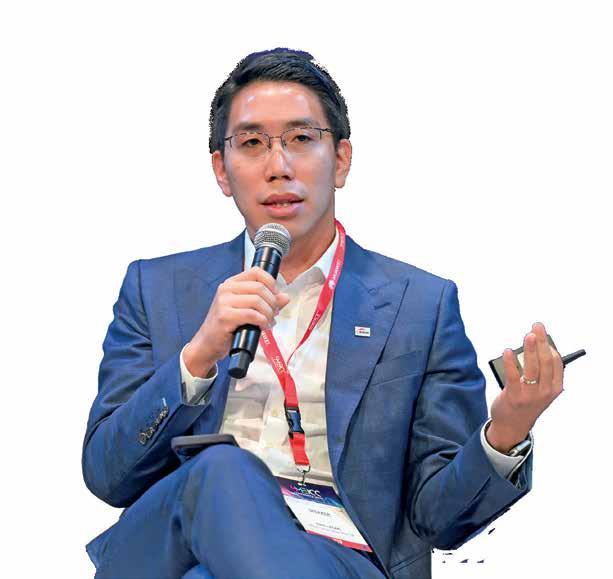
“If nobody wants to do it, this is our opportunity.”
stakeholders’ pain points within the steel and construction industry.
As a digital B2B steel marketplace, GoListid helps to bridge the gap between buyers and sellers by providing sellers with an extensive network of buyers and helping sellers list their items with confidence and transparency.

Over the years, the emergence of new technology in steel production has presented opportunities for clients to save costs, even though this meant initially accepting lower margins. The “client first” approach has driven Eric and his business to actively innovate. In August 2023, Mlion Corporation launched two innovations - GoListid (pronounced as Go-List-It) and GoTagID (pronounced as Go-Tag-It) with the support from Enterprise Singapore. These innovations aim to target
GoTagID addresses another key pain point for the steel industry - traceability. This first-of-its-kind tagging solution utilises RFID technology to provide reliable tracking and tracing capabilities, enabling contractors and regulatory authorities to quickly and confidently trace and verify the steel. As Eric shared, to Redefine is to “Catalyse Change” and for GoListid, by providing “Cash Advance and Financing” not seen before in the industry. These innovations are the fruits of redefining solutions and aiming to provide client-centric solutions instead of products.

President
Stellar Lifestyle, a business arm of SMRT Corporation Limited, reimagines transit spaces into vibrant lifestyle hubs. Under the leadership of President Tony Heng, the company leverages its expertise in property and retail management, as well as media and digital advertising, to enhance commuter experiences. Stellar Lifestyle manages Singapore’s largest network of retail and advertising spaces within the MRT system, transforming transit environments into dynamic destinations. By integrating retail, dining and digital engagement platforms, Tony and his team are redefining the commuters’ journey and lifestyle, by fostering community connections and driving economic growth.
In 2022, Stellar Lifestyle launched “Hive by Stellar Lifestyle”, an innovation space to help SMEs with practical go-to-market implementation solutions covering new consumer technologies, complemented with novel pop-up stores, offering services to SMEs

“SMEs need not start from scratch. They can shorten the learning curve by looking for the ‘Queen Bee’.”
covering content creation, product testing and validation as well as fulfillment models. Last year, Stellar Lifestyle announced the launch of Hive 2.0, its retail innovation hub at Esplanade MRT Station.
As Tony shared, “Hive by Stellar Lifestyle” continues to support SMEs by introducing and validating innovations. Hive 2.0 leverages AI, robotics and connected networks to help retailers improve business efficiency and deal with issues such as rising costs, while providing
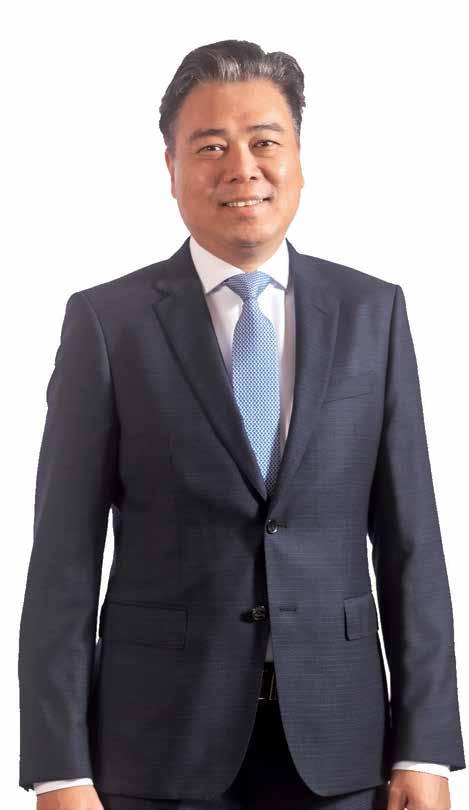
unique retail experiences. As a “Queen Bee” to the SMEs, Hive 2.0 demonstrates Stellar Lifestyle’s iterative approach to developing solutions that support its retail partners, benefit the local community and transform retail at MRT stations into vibrant lifestyle destinations.
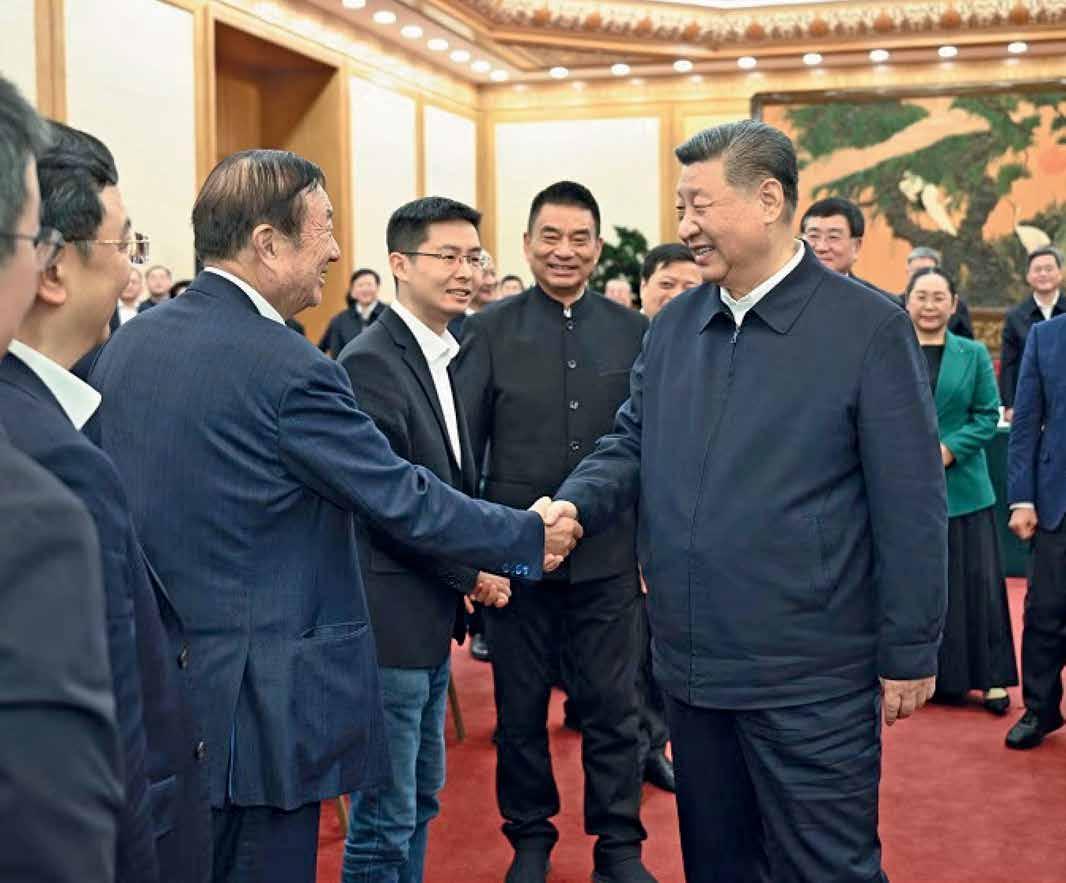
Was the recent symposium on private enterprises a real message to the private sector in China, or was it just lip service? Does China really have a strong enough private business sector that can keep pace with innovation in the West? EAI senior research fellow Lance Gore explores the issue.

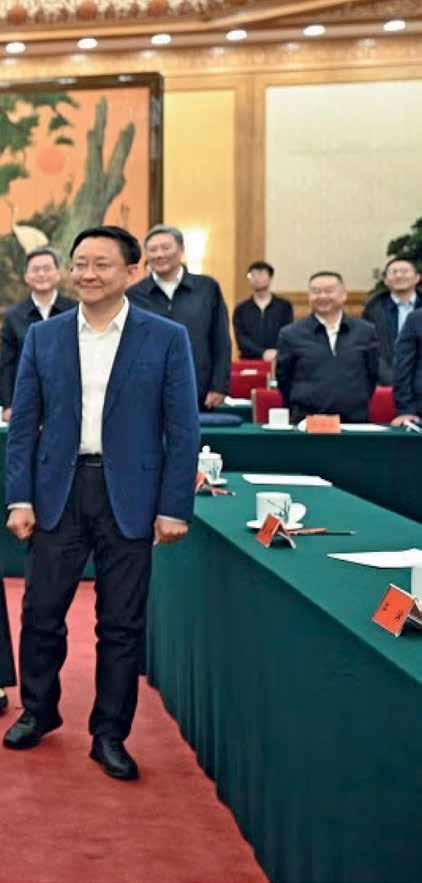
On 17 February, Chinese Communist Party (CCP) General Secretary Xi Jinping held yet another symposium with private entrepreneurs, with executives from technology and innovation enterprises in the front row, directly facing the top CCP leadership. This is amid the rampedup promotion of Hangzhou’s “Six Little Dragons”, a group of influential hightech companies that have emerged in Hangzhou in recent years, including DeepSeek, which is making waves in the Western artificial intelligence (AI) sector.
Some local governments are asking why the Six Little Dragons did not emerge in their regions, and how their business environments differ from Hangzhou’s. It is said that the Hangzhou government is transparent and efficient — officials do their jobs and then fade out, without bothering businesses or ordering them around. Notably, among the current seven members of the Politburo Standing Committee, three have previously served in Hangzhou.
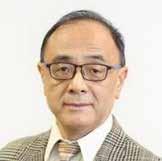
Senior Research Fellow, East Asian Institute, National University of Singapore
Translated by Ng Kum Hoon
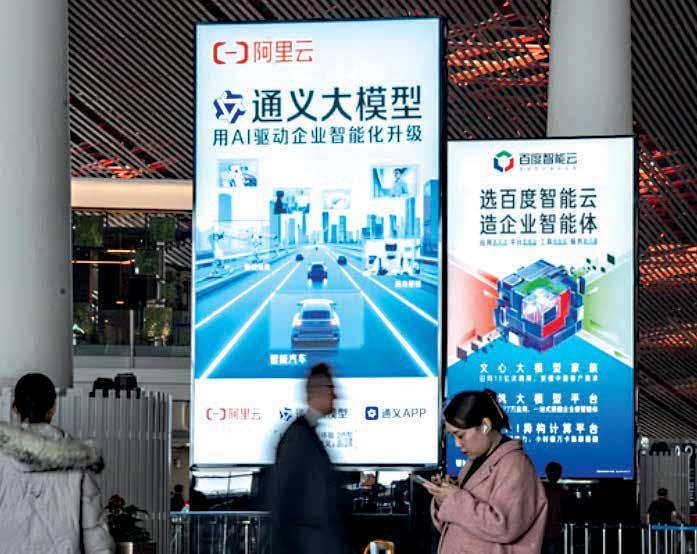
One focus of this symposium was the attendance of Alibaba founder Jack Ma. Many interpreted this as a sign of a new direction in the CCP’s policy toward private enterprises, who now have a higher role in driving innovation and developing new productive forces.
Xi’s last symposium with private enterprises was in November 2018, when the idea of “private enterprises exiting the stage” was circulating. He responded that assertions suggesting private enterprises should exit or that the mixed-
ownership reform is a new public-private partnership are incorrect. Additionally, claims that party-building and union activities are meant to control private enterprises misrepresent the party’s major policies.
Following the meeting, state media emphasised that private enterprises are “one of us” and, rather than exiting the stage, should move toward an even bigger platform.
Over the past five years, successive regulatory crackdowns on the real estate sector, private tutoring industry, gaming, platform economy, and internet finance have dealt severe blows to private enterprises. From the suspension of Ant Group’s IPO in November 2020 to July 2023, the combined market value of Alibaba, Tencent, and three other tech giants shrank by over US$1 trillion.
In January 2023, Ant Group announced a restructuring of its ownership, with Jack Ma relinquishing actual control. Six months later, the company was hit with a fine of over 7 billion RMB (US$960.8 million). Subsequently, Jack Ma moved overseas, settling in Japan. Meanwhile, a wave of crises engulfed property developers like Evergrande, whose founder, Hui Ka Yan, was detained, leading to rockbottom confidence among private enterprises.
At the symposium, Huawei founder Ren Zhengfei expressed concerns over the ongoing talent drain. Since 2015, China has consistently been the largest source country for high-net-worth individual (HNWI) emigration. In 2024, an estimated 15,200 HNWIs emigrated from China, mainly to the UAE, the US, Canada, Singapore and Japan, contributing to a capital loss of about US$1 trillion. The figures for 2023 and 2022 were 13,800 and 10,800 individuals respectively.
On the other hand, China has continuously adopted measures to protect private enterprises, including the 36-point guideline
In 2024, an estimated 15,200 HNWIs emigrated from China, mainly to the UAE, the US, Canada, Singapore and Japan, contributing to a capital loss of about US$1 trillion.
on the non-public sector (非公36条) issued in late February 2005, the “new 36 measures” (新36条) in May 2010 (five years after the original 36 points), the “28 measures” (28条) following the private enterprise symposium in November 2018, and another 31-point guideline (民企31条) introduced in July 2023, emphasising enhancing technological innovation capabilities.
On the legislative level, China’s constitution has undergone several significant amendments regarding the protection of private property. The 1988 amendment allowed for the existence of the private businesses and recognised it as a “supplement to the socialist public economy”. The 1999 amendment confirmed the “socialist market economy”, elevating the status of the non-public economy, emphasising that it is an “important component” of the socialist market economy rather than merely a supplement to public ownership. The 2004 amendment explicitly states: “Citizens’ lawful private property is

... they contribute more than 50% of tax revenue, over 60% of GDP, more than 70% of technological innovation achievements, over 80% of urban employment, and more than 90% of the total number of new enterprises.
inviolable… The State, in accordance with law, protects the rights of citizens to private property and to its inheritance.”
The private sector now accounts for more than the commonly cited “half of the country’s economy”. At the recent symposium, Xi Jinping summarised the contributions of private enterprises as “fivesix-seven-eight-nine” — they contribute more than 50% of tax revenue, over 60% of GDP, more than 70% of technological innovation achievements, over 80% of urban employment, and more than 90% of the total number of new enterprises.
By these measures, the status of private enterprises should not be a problem, as their share of GDP is close to that of some capitalist countries such as Norway, France, UAE, Brazil and India. However, unlike these countries, in China, “capitalists” and other “HNWIs” often get spooked at the slightest policy shift, like stray dogs. The recent regulatory adjustments targeting private enterprises would be considered normal in other countries — they would not be escalated to the level of “crackdowns” on private enterprises, requiring repeated reassurances from the country’s top leadership. This is because China’s socialist market economy has two inherent deficiencies.
Firstly, entrepreneurs occupy an inherently vague status. As the main drivers of a market economy, their entrepreneurial spirit fuels economic dynamism. Despite constitutional amendments and regulations, private enterprises have faced challenges in gaining legal recognition. Meanwhile, the top management of state-owned enterprises (SOEs) is appointed by the CCP’s Organization Department, making them subordinate to the party-state. In the political power structure, both private and state-owned enterprises are subordinate entities. Aligning with political power is an effective way to protect their interests. When private enterprises succeed, they often draw attention from government
officials eager to associate with them. As a business executive from Hangzhou noted, “The sheer number of study delegations and inspection teams, drinking until they’re staggering — any boss would be terrified.” Some local governments and officials lack integrity, frequently defaulting on payments owed to private enterprises, effectively becoming “deadbeat debtors”. Their impunity highlights the second-class status of private entrepreneurs.
The establishment of a Bureau of Private Economy under the National Development and Reform Commission is one of the few substantive reforms in the past 40 years. However, within the broader power structure, it remains insignificant.
In this national hierarchy, retaining talent often relies on material incentives. At the symposium, Xi emphasised that China’s “well-developed industrial and infrastructure systems, along with a massive market of over 1.4 billion people, offer the private sector abundant new opportunities and greater room for development”.
Their [officials’] impunity highlights the second-class status of private entrepreneurs.
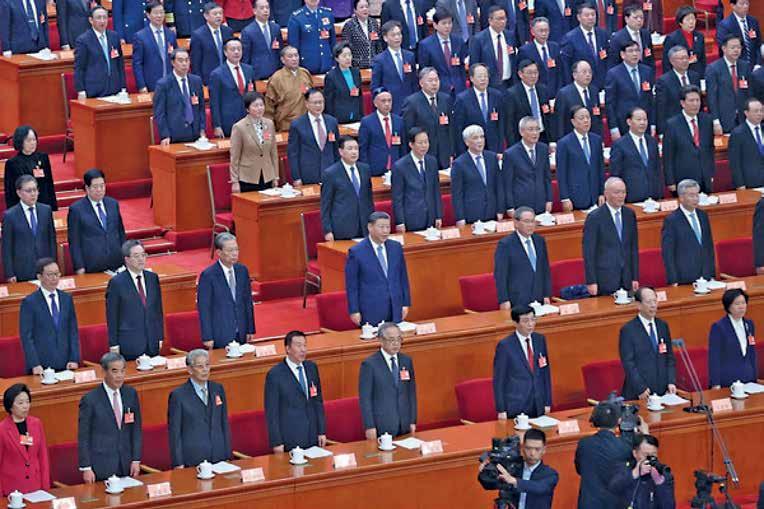
The ideological bias here treats these two economic forms as separate and opposing entities, rather than as equal participants in the market.
The second inherent deficiency arises from the official ideology, which underpins the existing power hierarchy. So far, ideological innovation has not successfully reconciled the core Marxist theories — like the abolition
of private ownership and exploitation, class struggle, the dictatorship of the proletariat, and the realisation of communism — with the principles of a market economy.
The arduous process of introducing market mechanisms in China highlights this tension, moving from “cutting off the capitalist tail” to the “birdcage economy”, then the “market as a supplement”, followed by the “planned market economy”, and finally to the “socialist market economy”. Recently, “the leadership of the Communist Party” has replaced “socialism”, with nods to Confucianism and other cultural traditions. Despite these adjustments, entrepreneurs have often been marginalised in various ways.
In the “socialist market economy”, the role of private enterprises is largely defined by the principle of “adhering to two unwavering commitments”: steadfastly consolidating and developing the public economy while also encouraging, supporting, and guiding the growth of the non-public economy. The ideological bias here treats these two economic forms as separate and opposing entities, rather than as equal participants in the market.
When China introduced the “31 measures” mentioned above, former Global Times editor-in-chief Hu Xijin interpreted it to mean “true equality between the private and the state-owned economy”. However, he was reprimanded for this remark and his internet accounts were shuttered for a month as punishment.
Private enterprise owners are more sober — they know their place and risks. The ideological indoctrination from the Mao era has heightened sensitivity to wealth disparity among the Chinese public, with envy and resentment toward the wealthy still common. These sentiments often influence government actions, as the historical tendency of leftist thinking makes “robbing the rich to give to the poor” an almost instinctive reaction. The extreme left has always had a strong ideological foundation, political influence and public support, making it easy for them to incite unrest.
This is precisely why Deng Xiaoping once warned: “We must be wary of the right, but the main danger comes from the left.”
A key backdrop to this symposium is the rise of AI as a general-purpose technology, permeating all industries and becoming the primary driver of economic growth. This also adds urgency to the CCP’s push for “new quality productive forces” following the 20th Central Committee’s Third Plenary Session. The storm triggered by DeepSeek has demonstrated the immense power of technological innovation and entrepreneurship in the knowledge economy. History has shown that innovations in today’s economy are highly decentralised, often emerging from unknown small enterprises and individuals.
... should it continue supporting state-owned enterprises (SOEs) and mobilising national resources for large-scale projects under a stateled model, or should it create an environment that allows unexpected disruptors to emerge from all corners of society?
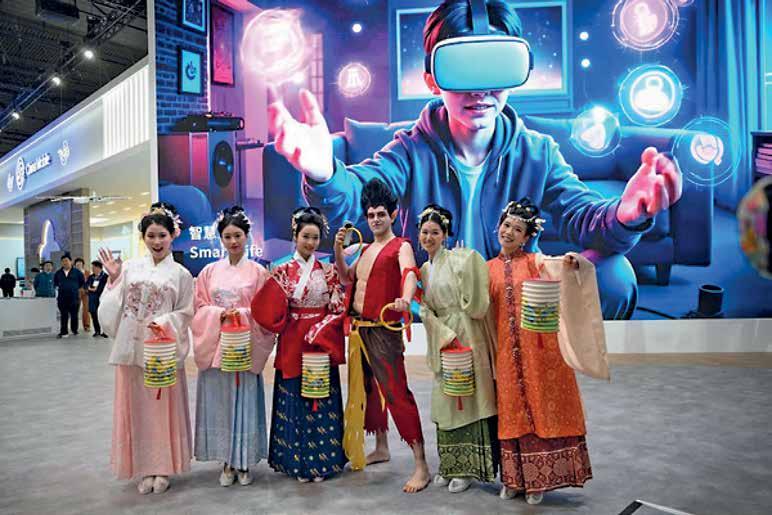
Bill Gates recognised this characteristic of the new economy early on. During his tenure as Microsoft’s CEO, he said large corporations such as IBM, Intel, HP, and Dell were not on his radar — only small, agile startups had the potential to disrupt Microsoft.
The innovation-driven economy presents the CCP with a challenge: should it continue supporting state-owned enterprises (SOEs) and mobilising national resources for largescale projects under a state-led model, or should it create an environment that allows unexpected disruptors to emerge
from all corners of society? This is a strategic adjustment that could shape the nation’s future. Decades ago, the unexpected rise of township and village enterprises (TVEs) caught Deng Xiaoping by surprise, as they were not part of his original vision. More recently, Elon Musk’s SpaceX, founded in 2002, has surpassed China’s state-led aerospace industry — boasting a history of over 70 years — in several key areas, such as heavy payload capacity and rocket recovery technology. Even NASA has been humbled by its achievements.
The innovation economy is driven by knowledge- and technology-based entrepreneurship. Their rise is difficult to predict and even harder to control. This shift significantly strengthens the role of private enterprises, forcing ideological and governance models to adapt while challenging Marxist views on private ownership, capitalists, and historical progress.
These modern entrepreneurs are workaholics, not an idle elite. They are good at getting things done but are not good at socialising and are often at odds with bureaucratic culture. They are a new class of capitalists whose main asset is intellectual property.
At the symposium, Xi Jinping expressed his hope that private enterprises would “first become prosperous and then promote common prosperity”. This touches on another key ideological issue: socialism.
History may eventually prove that common prosperity — and even communism — could emerge from new capitalists rather than the proletariat. Some of America’s wealthiest capitalists, such as Elon Musk, Warren Buffett, and Bill Gates, are also social activists. They use capital accumulation as a means to pursue socialist objectives, integrating social and environmental concerns into market operations to dilute, constrain, and transform the traditional logic of capital, thereby mitigating its alienating effects. Gates has argued that only socialism can resolve many of the challenges facing humanity.
Many prominent tech leaders, including Gates, Musk and the father of AI Geoffrey Hinton have publicly identified as “socialists” on different occasions.
A blog entry by Elon Musk promises that Tesla “will not initiate patent lawsuits against anyone who, in good faith, wants to use our technology”. Musk elaborated: “If somebody comes and makes a better electric car than Tesla, and it’s so much better than ours that we can’t sell our cars and we go bankrupt, I still think that’s a good thing for the world.”
Silicon Valley, often seen as the heart of capitalism, is also the centre of the Universal Basic Income (UBI) movement — a policy rooted in the socialist ideal. Many prominent tech leaders, including Gates, Musk and the father of AI Geoffrey Hinton have publicly identified as “socialists” on different occasions.
All this can inspire ideological innovation.
www.thinkchina.sg
This article was first published in ThinkChina on 10 Mar 2025 ThinkChina is an English language e-magazine by Lianhe Zaobao. SCCCI collaborates with ThinkChina to cross-share content.

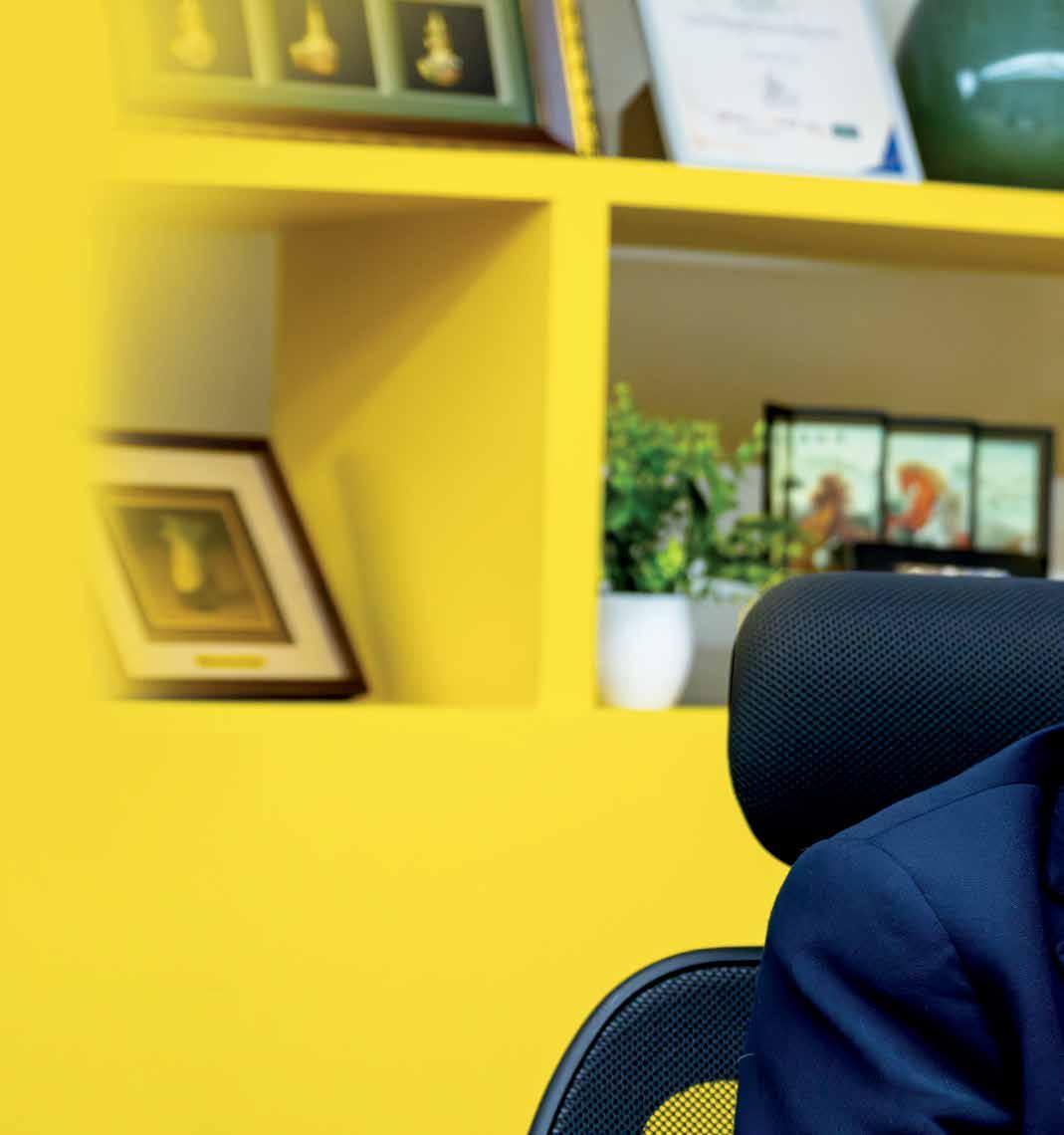
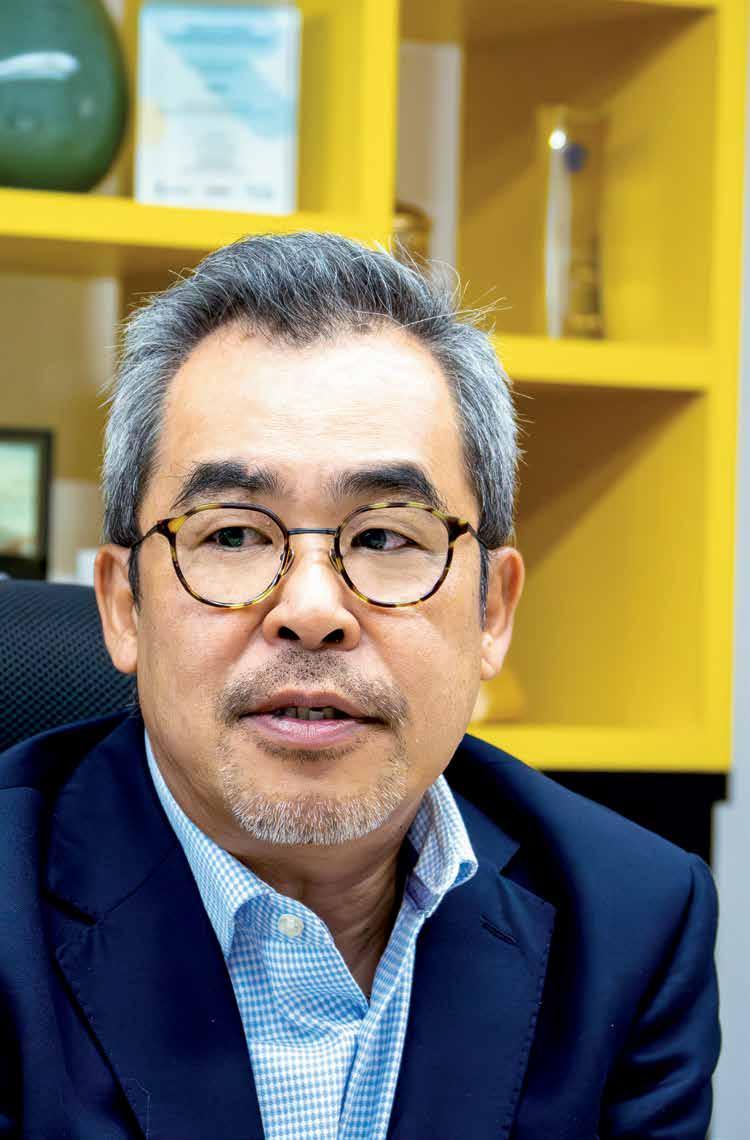



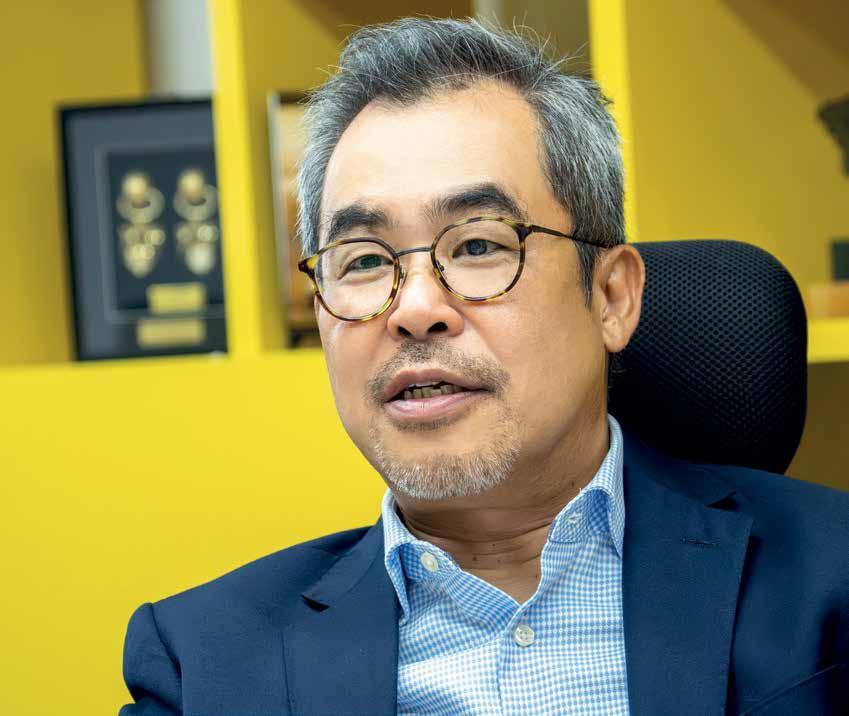

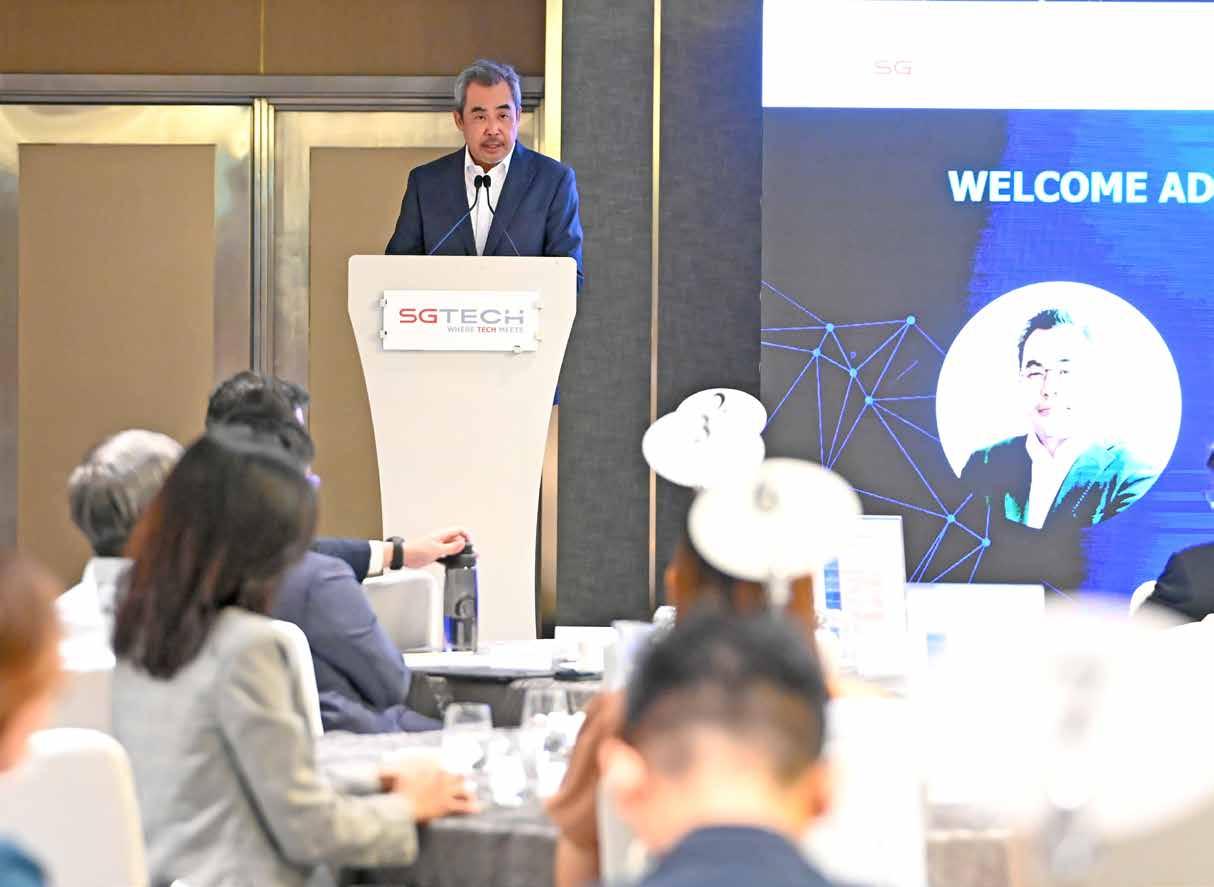



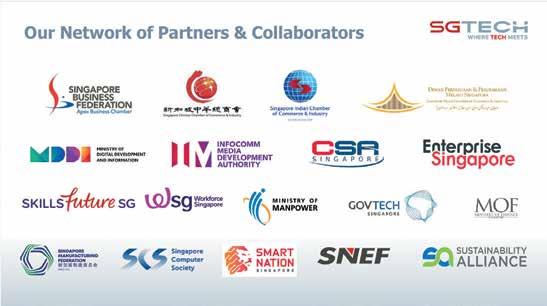

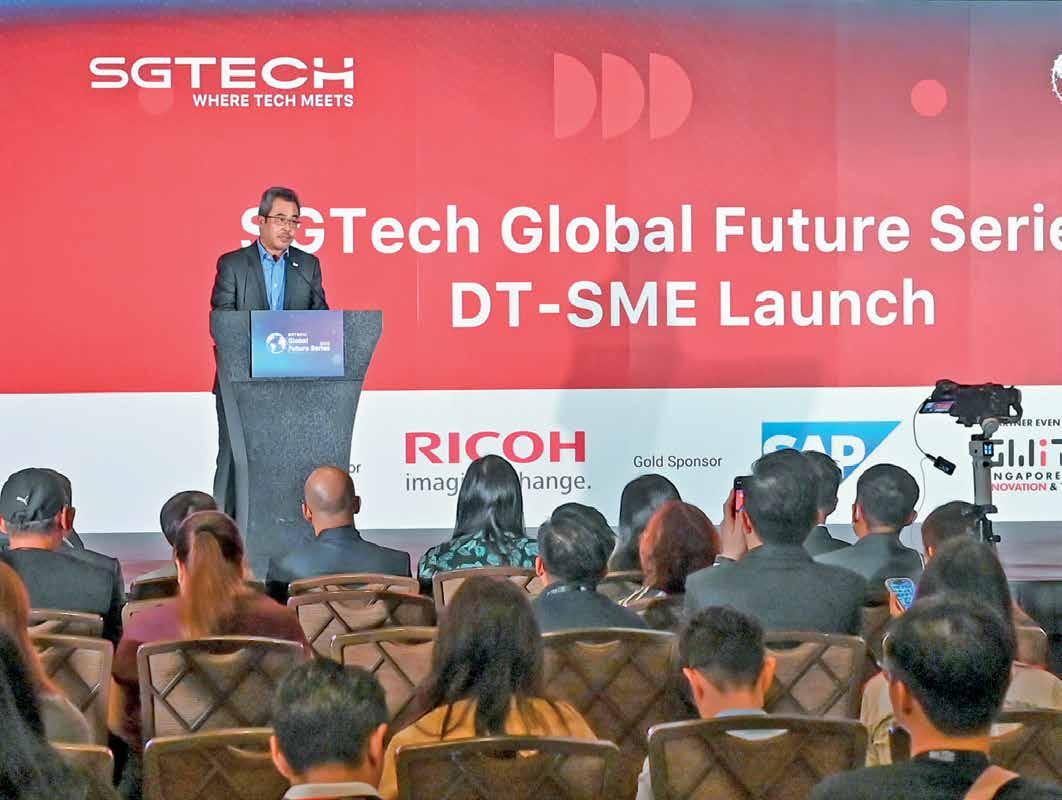
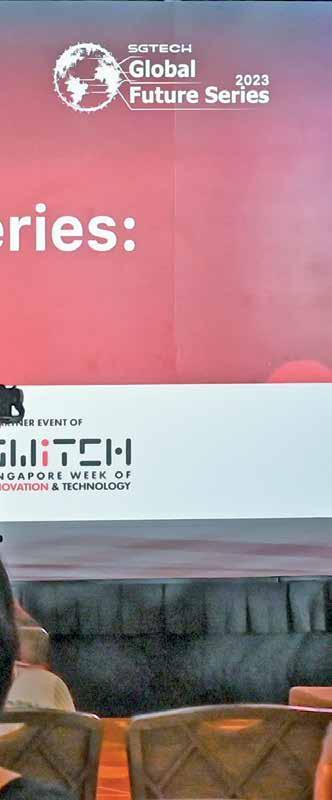


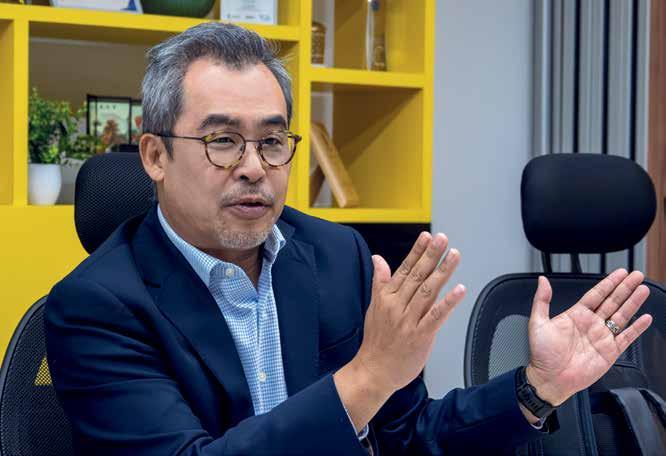

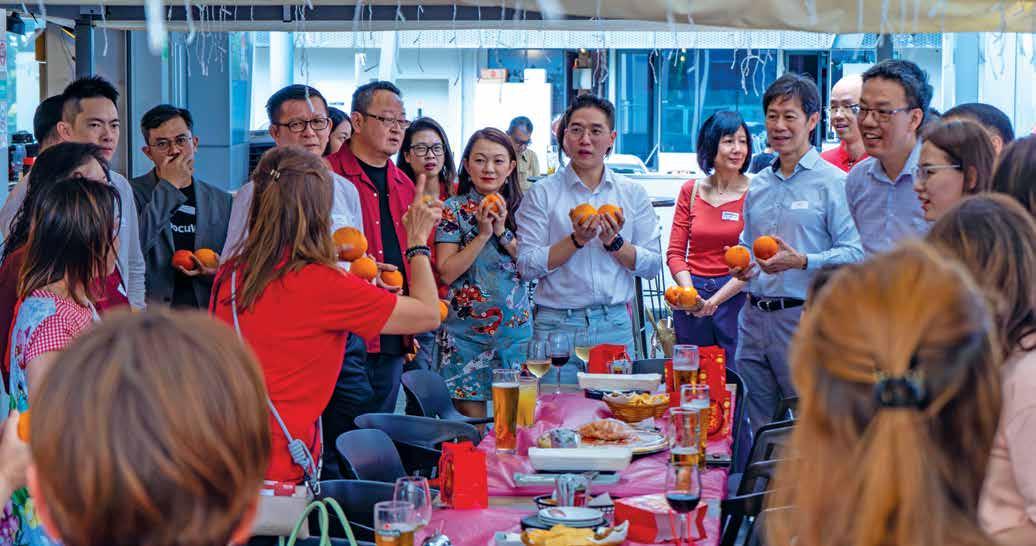


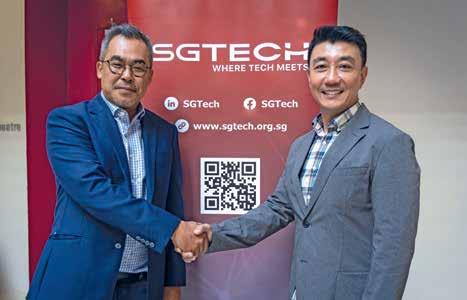
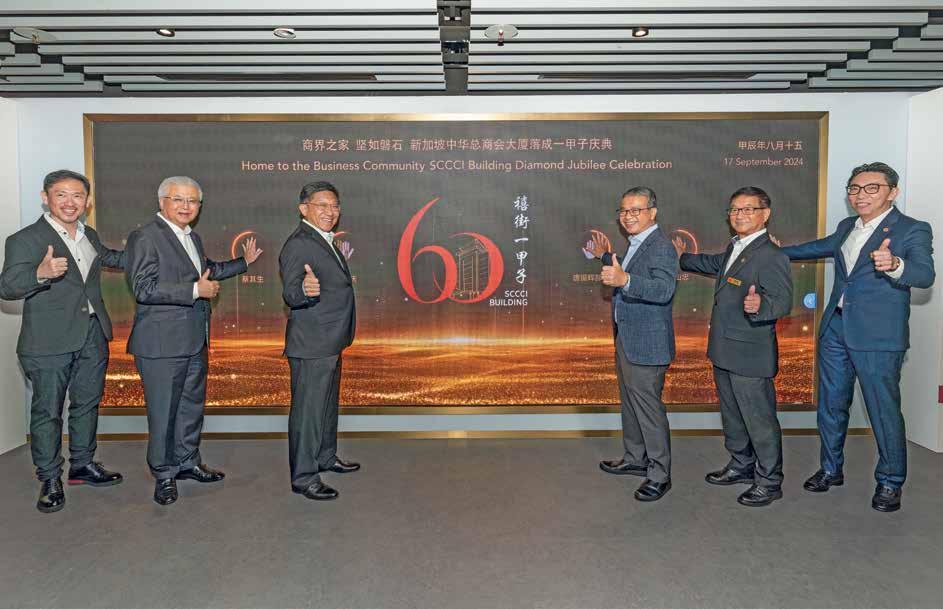
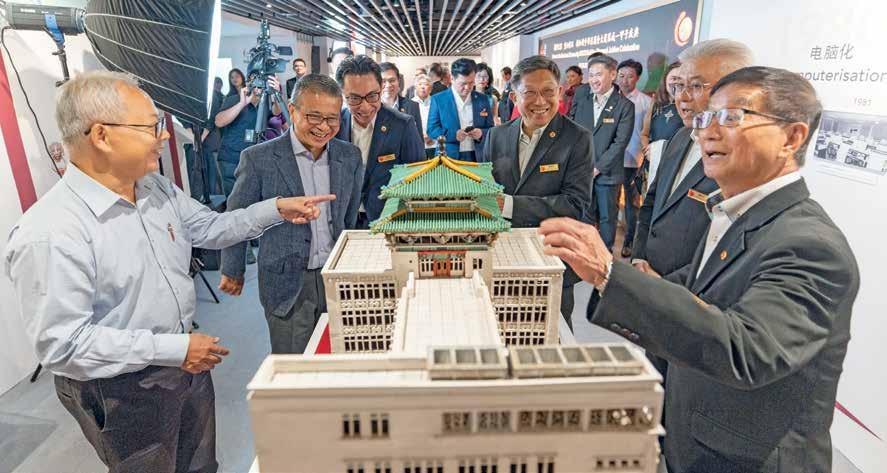


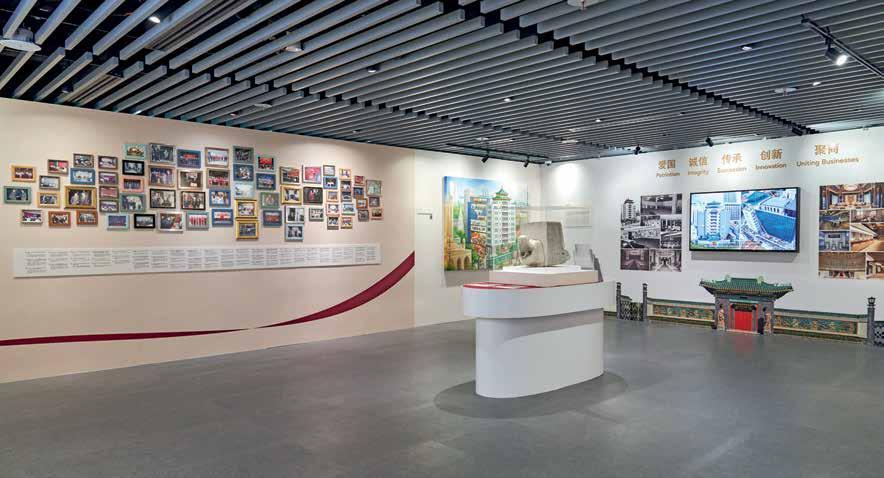

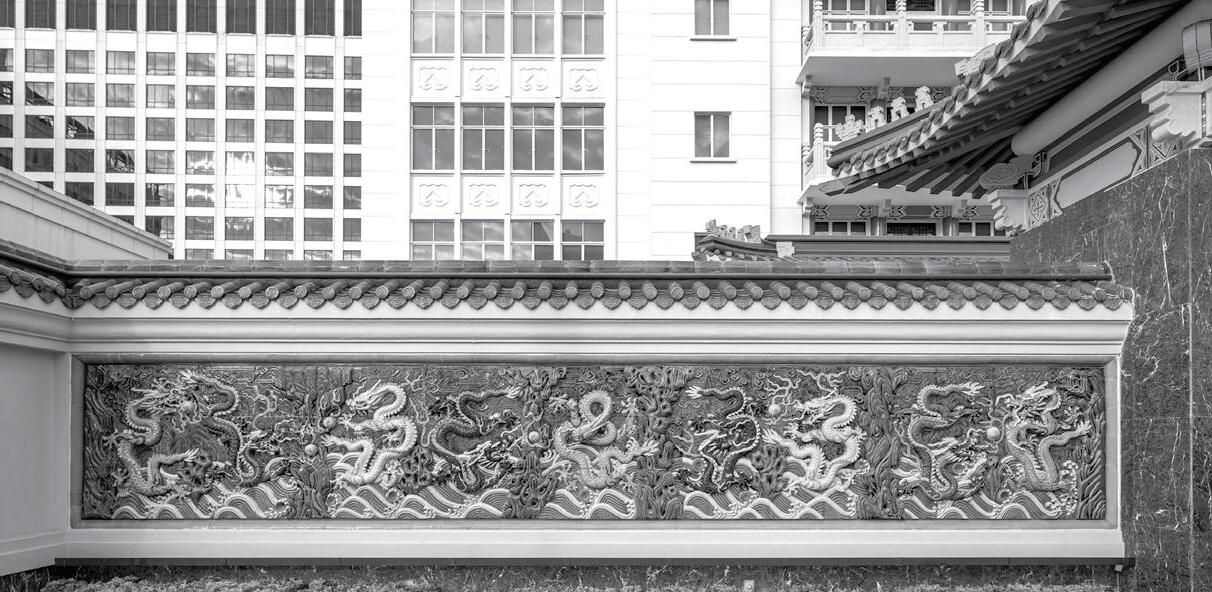


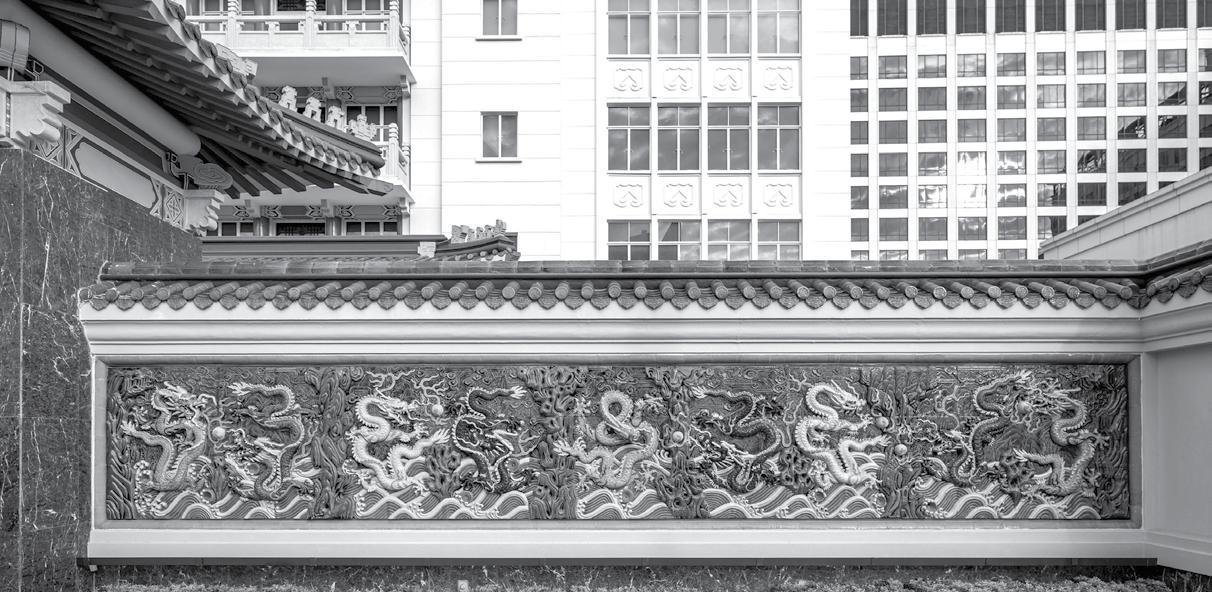

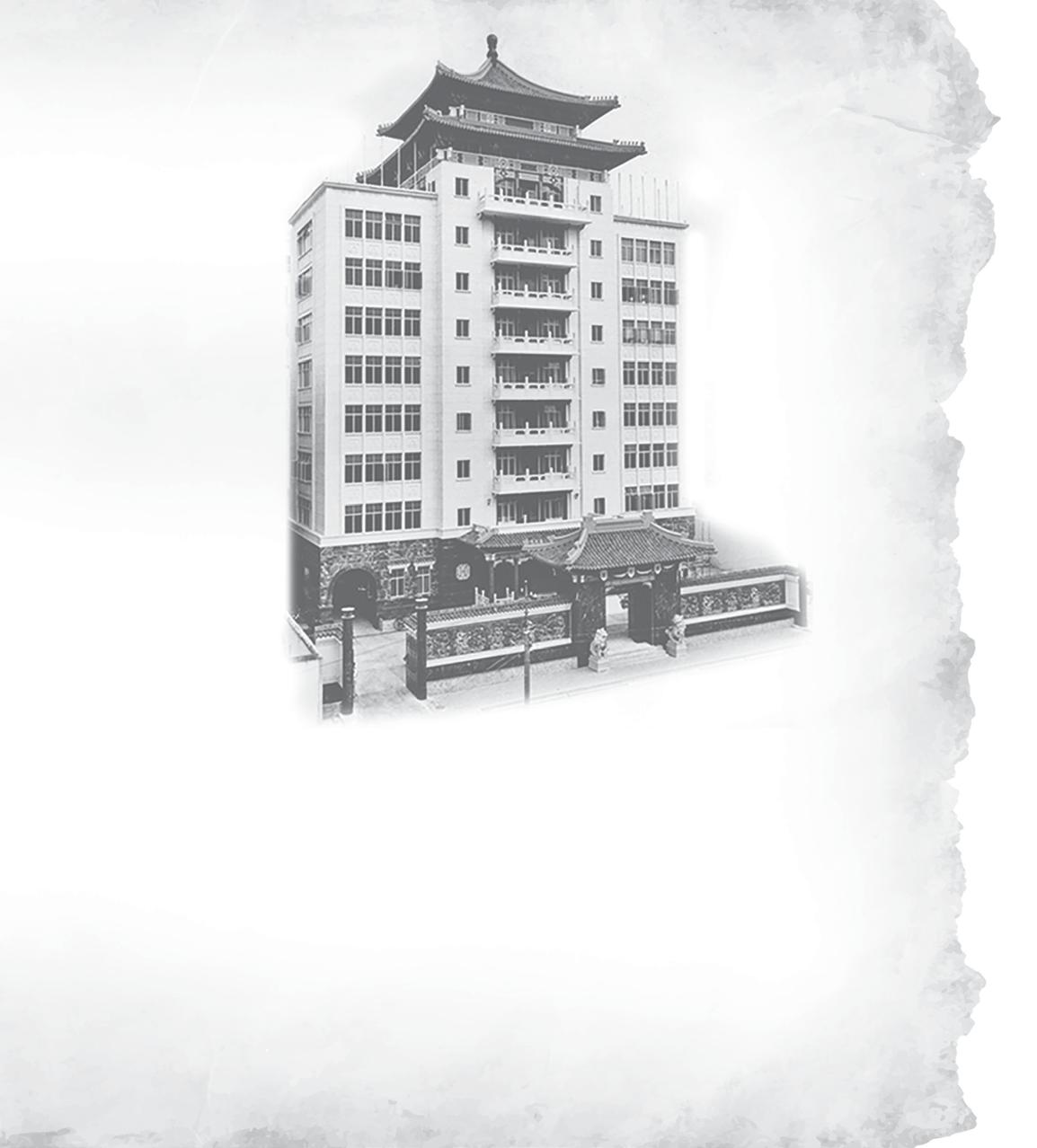

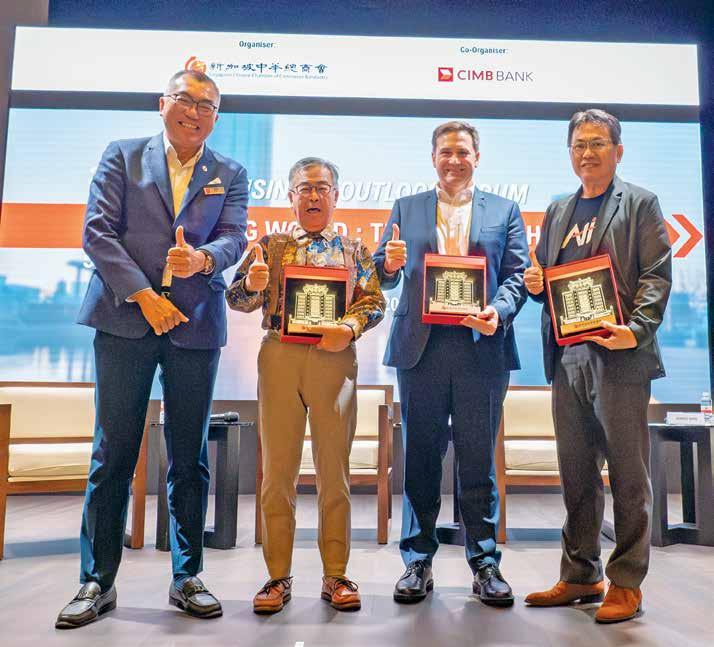
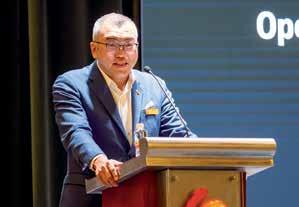
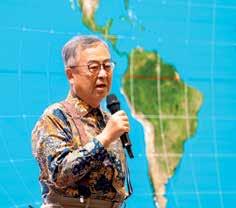
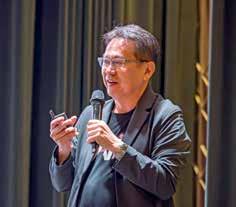

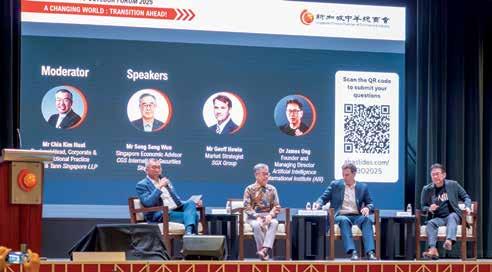
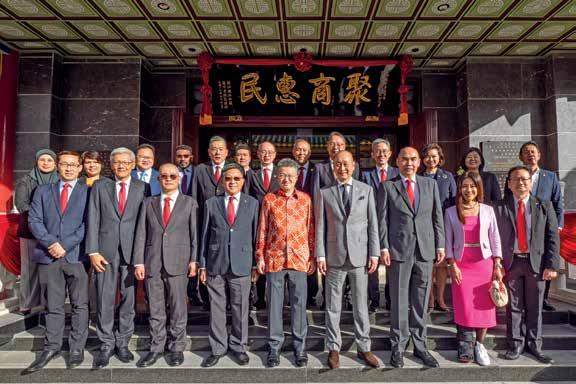
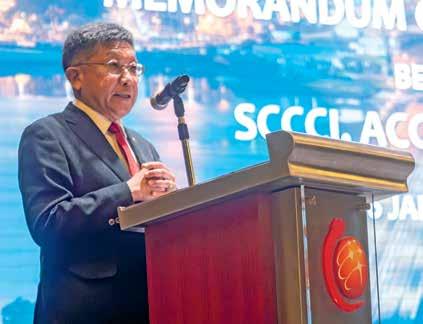
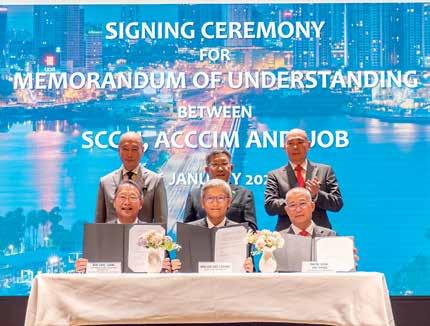
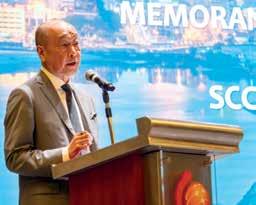
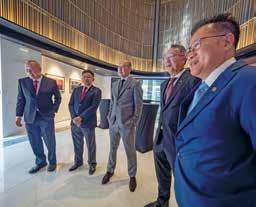
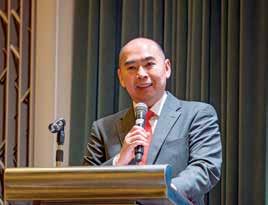
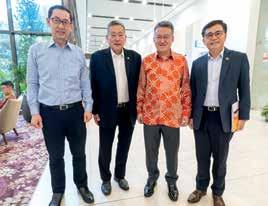

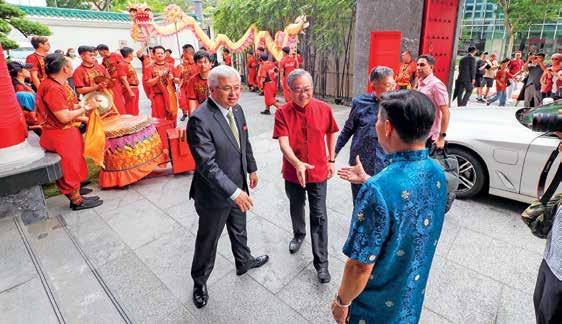
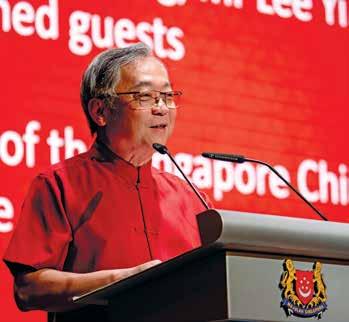
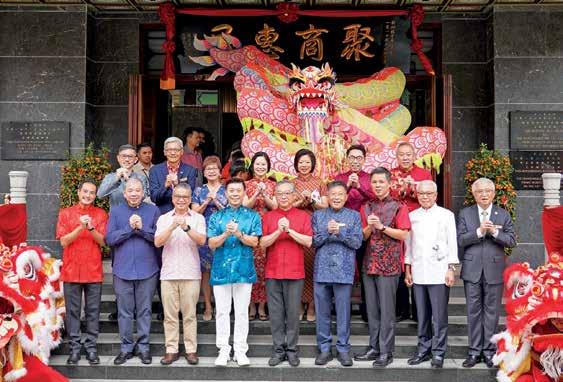
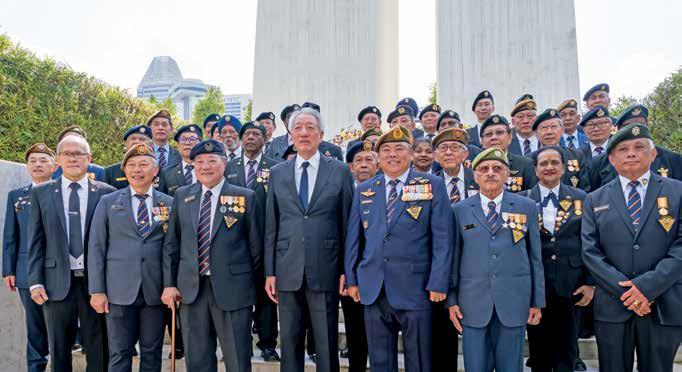
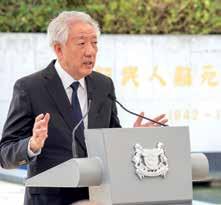
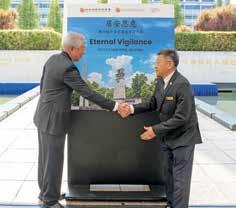
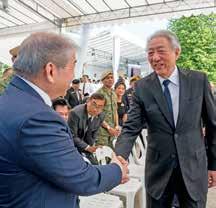
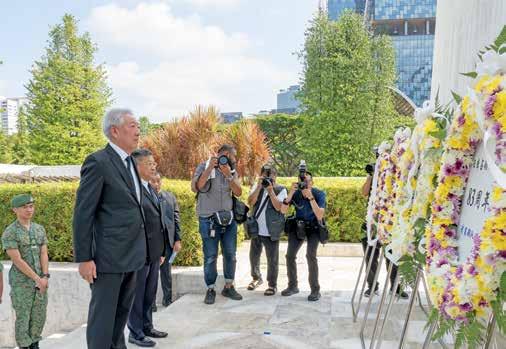
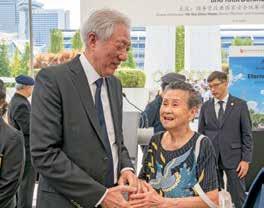

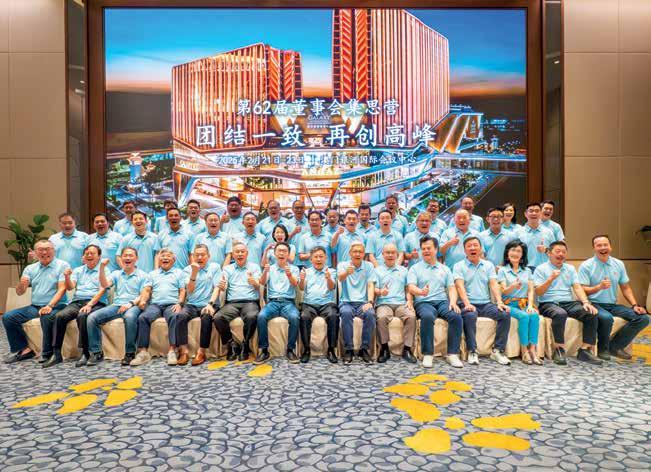
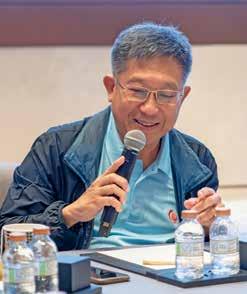
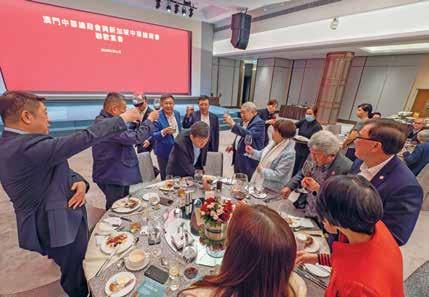
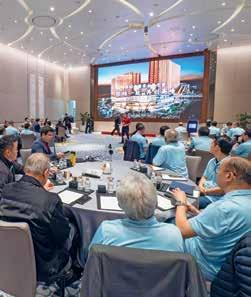
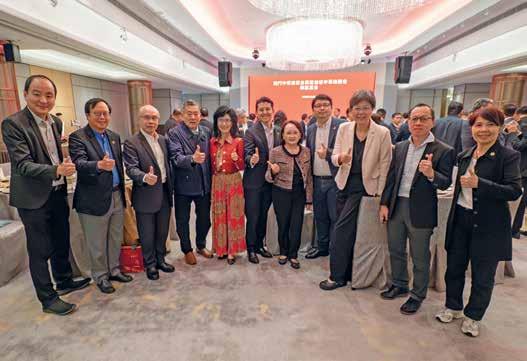
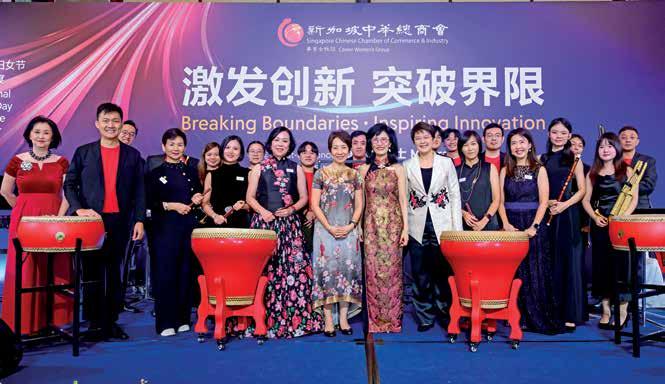
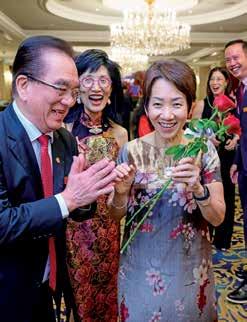
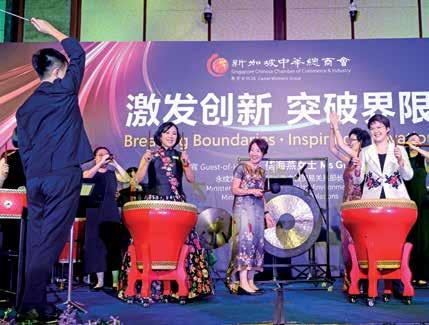
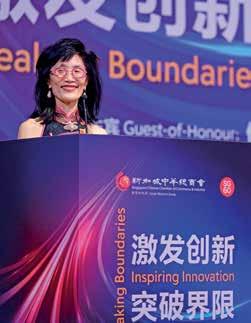
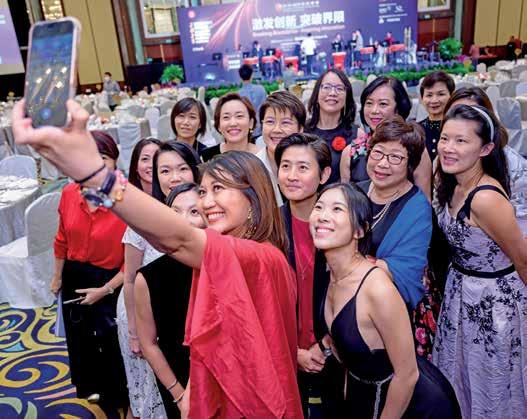

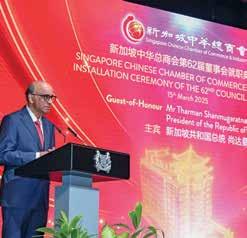
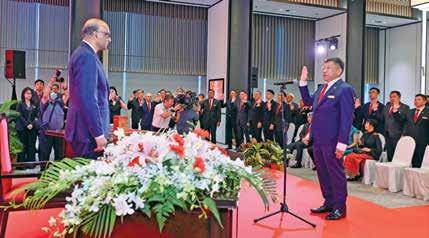
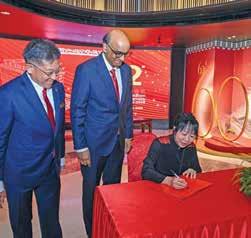
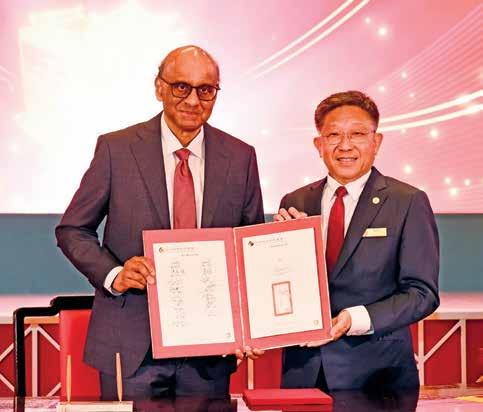
AIRTUMTEC PTE LTD
ASCENTIUM GLOBAL SERVICES HOLDINGS PTE LTD
ATPI SINGAPORE PTE LTD
AV SW GREEN ENERGIES PTE LTD
CAPE CONSULTING PTE LTD
CHANG JIA FANG
CHANGTING NETWORK TECHNOLOGY PTE LTD
CHEN LEI
CHEN MENG
ENCRYPT LABS PTE LTD
ERPADVANCE ASIA PTE LTD
EU YAN SANG (SINGAPORE) PRIVATE LIMITED
FUTURE FAMILY (SINGAPORE) PTE LTD
GLOBAL ASIA MANAGEMENT EDUCATION PTE LTD
GORENTAL LLP
GP99 ASSOCIATES PTE LTD
GREENIE WEB PTE LTD
GROWTH IMPACT GROUP PTE LTD
HO RUI-KEN KENNETH
HRNETGROUP LIMITED
HUI SUI-HANG
JIANG JINYUAN JIMMY
JIANG TAO TONY
JINAN XIANXING (SINGAPORE) PTE LTD
JOINSEA SG PTE LTD
K. E. CHEN & CO
KISG CONSULTING PTE LTD
KLP LLP
KOH AI PING KEMMY
LEE HAN CHIANG JOSEPH
LEE SI MIN JASMINE
LI CHUNYAN
LI YUANJI
LOH MEI LIAN DIANA
MOK ZHEN YANG ZACHARY
MONEYMAX FINANCIAL SERVICES LTD
NESTLE SINGPAORE (PTE) LTD
NGEE ANN POLYTECHNIC
ONG BOEY KEOW
PALMVB PTE LTD
QIU WEI
REN TIANXIAO
REVUP CONSULTING PTE LTD
ROFFE INTERNATIONAL HOLDINGS PTE LTD
STRATEGIC ASIA PTE LTD
TAN CHIAN YI AARON
TAN SHUI SHENG
THE HARLEY STREET HEART CENTRE
TRELLISWERKZ PTE LTD
TRENDLIT PUBLISHING PRIVATE LIMITED
XING YANPING VIVI
YE JING NATALIE
YEO KWEE CHEE VIOLET
YEOH KUAN HUA
YIN NI
ZHANG MING
ZHANG XUYU
KEVIN WONG WEI BOON
WENDY WANG HUI
SAWANT VISHAL
KATHERYN TAN KAH KOON
HO WEE BENG
CHANG JIA FANG
HUANG KECHANG
CHEN LEI
CHEN MENG
AMOS TAN YONG CHIN
DENG JIN FANG
CHIU YUEH HUEI
QIAO JING
ZOEY SU CHUHONG
COLIN PEH JIN WEI
ANDREW YAP CHEE MIN IAN CHEW
CHIA ZHI WEI
KENNETH HO RUI-KEN
ADELINE SIM WEI LING HUI SUI-HANG
JIMMY JIANG JINYUAN
TONY JIANG TAO
ZHANG YING
LOW ZHAO JING
CHEN KUAI ENG FERY
LIM YEONG SENG
KEMMY KOH AI PING
JOSEPH LEE HAN CHIANG
JASMINE LEE SI MIN
LI CHUNYAN
LI YUANJI
DIANA LOH MEI LIAN
ZACHARY MOK ZHEN YANG
LIM CHUN SENG
LEE GEE CHYN
JOANNA CHIA YITING
ONG BOEY KEOW
LOUIS TAN XIN LIANG
QIU WEI
REN TIANXIAO
JAIME LIM MEI LING
FRANKIE FAN FUQING
DARREN CHEN SEONG LEE
AARON TAN CHIAN YI
TAN SHUI SHENG
ROLAND SILALAHI
BENJAMIN HUANG ZUXIAN
ANG LAI SHENG
VIVI XING YANPING
NATALIE YE JING
VIOLET YEO KWEE CHEE
YEOH KUAN HUA
YIN NI
ZHANG MING
ZHANG XUYU
Executive Director
Group President
Commercial Director Asia
Chief Operating Officer
Shareholder
Chief Executive Officer
Director
Relationship Manager
Vice President
Director
Sales and Marketing Director
Senior Managing Director
Director
Manager
Managing Director
Managing Director
Founder & Chief Executive Officer
Owner and Co-Founder
Associate Director, Technology
Executive Director & Chief Corporate Officer
Associate
Business Builder
Chairman
Executive Director
Director
Managing Partner
Managing Director
Managing Partner
Managing Director
Senior Director
Investment Advisor
Client Advisor
Founder & Managing Director
Director
Vice President, Private Equity
Group General Manager
Regional Regulatory Operations Strategist
Country Manager, China
Product Manager
Managing Director
Director
NA
Director & Founder
Chairman & Chief Executive Officer
Director
Associate
Managing Partner
Senior Marketing Manager
Managing Director
Chief Executive Officer & Chief Editor
Business Development Manager
Chief Operating Officer
Director
Partner
Financial Advisory Manager
Human Resources Director
Partner
